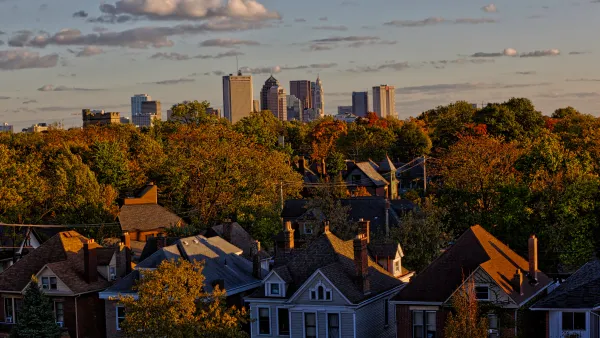A recent ruling that favored local homeowners over a developer in Houston had some wondering whether Houston's days as a "development free-for-all" were over. Fear not, says Stephen J. Smith.
Stephen J. Smith provides background about some of the legal and regulatory contexts in Houston, especially following a potentially precedent-setting decision in a recent lawsuit against the developers of a high-rise project known as the Ashby.
In the past, explains Smith, land use regulations in Houston induced sprawl, such as the sewer moratorium in 1974, which severely restricted development for a decade, as well as regulations that limited the types of townhouse construction popular with developers.
But when such restrictions are overturned, such as the anti-townhouse rules were in 1998, Houston's market and regulatory environments usually encourage density. "Since the minimum townhouse lot size has been dropped to 1,400 square feet, the attached houses have been popping up all over Houston’s inner-Loop. The townhouses are not always popular, with the treatment of their garages — each requires two parking spaces according to the city’s non-zoning code — coming in for most of the criticism. But despite their design defects, the attached homes are adding real density — filling in the holes in neighborhoods like Midtown, Montrose and beyond, and packing bodies within walking distance of shops, restaurants, light rail and frequent bus routes."
What does this mean for the recent decision in the Ashby case? "The Ashby high-rise case was a setback for the development industry, but not a fatal blow." In fact, says Smith, "Houston has become considerably more friendly to dense infill development, and will likely continue the trend."
FULL STORY: Sprawltastic Houston Is Densifying and the Courts Can’t Stop It

Analysis: Cybertruck Fatality Rate Far Exceeds That of Ford Pinto
The Tesla Cybertruck was recalled seven times last year.

National Parks Layoffs Will Cause Communities to Lose Billions
Thousands of essential park workers were laid off this week, just before the busy spring break season.

Retro-silient?: America’s First “Eco-burb,” The Woodlands Turns 50
A master-planned community north of Houston offers lessons on green infrastructure and resilient design, but falls short of its founder’s lofty affordability and walkability goals.

Test News Post 1
This is a summary

Analysis: Cybertruck Fatality Rate Far Exceeds That of Ford Pinto
The Tesla Cybertruck was recalled seven times last year.

Test News Headline 46
Test for the image on the front page.
Urban Design for Planners 1: Software Tools
This six-course series explores essential urban design concepts using open source software and equips planners with the tools they need to participate fully in the urban design process.
Planning for Universal Design
Learn the tools for implementing Universal Design in planning regulations.
EMC Planning Group, Inc.
Planetizen
Planetizen
Mpact (formerly Rail~Volution)
Great Falls Development Authority, Inc.
HUDs Office of Policy Development and Research
NYU Wagner Graduate School of Public Service




























